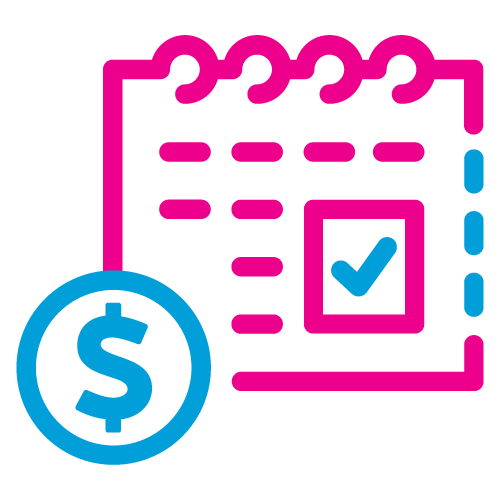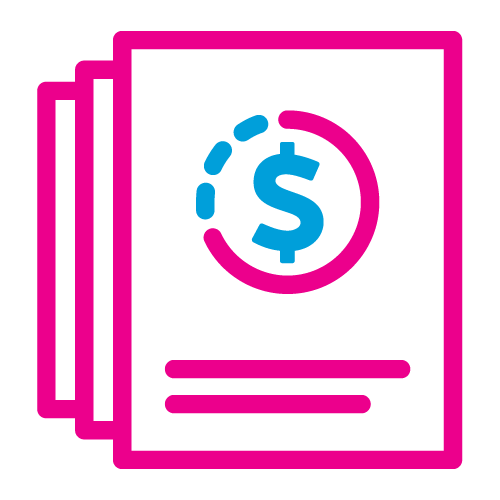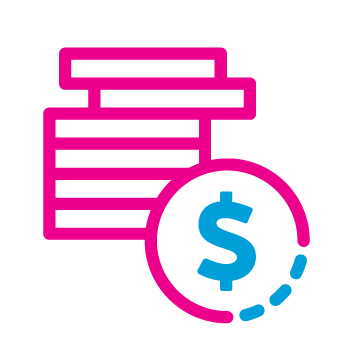Running your own small business comes with a level of freedom and flexibility, but this can leave little time for figuring out how to get a home loan.
Lenders will scrutinise not only your personal circumstances, but also those of your business – which can be daunting. That’s why we’ve put together a real life guide to self-employed home loans, to help take the stress out of the mortgage process.

Those refused a loan by the banks due to being self-employed

Newly self-employed borrowers – we accept 6 months of NZBN activity

Small business owners with alternative income documentation

Managing cashflow – we offer weekly, fortnightly or monthly repayments
Link Home Loans’s Alt Doc loan accepts applications using documentation that’s more relevant to a small business owner’s circumstances. You might be eligible for an Alt Doc loan even if you’ve only been self-employed for six months.
You’ll need to provide evidence of:
- NZBN registration for six months
- GST registration for six months
- A declaration of financial position plus one of the following: 6 months business bank statements (inclusive of the last one month) or six months business activity statements (BAS).
How are Alt Doc loans different to Low Doc loans?
Low Doc loans used to be a popular way to apply for a mortgage with minimal documentation, however responsible lending obligations include a requirement for lenders to assess whether a loan is suitable for a borrower. Low doc loans don’t meet these responsible lending obligations.
Our Alt Doc loans meet responsible lending obligations and accept alternative documentation options compared to traditional home loans.
The power of the Alt Doc loan
An Alt Doc loan could give you the power to help to buy your own home or invest in property. Refinancing a home loan to Link Home Loans could also allow you to consolidate business debt, improve your cash flow by paying outstanding tax debts, or even obtain cash for business purposes. All loan applications are subject to Pepper Money’s credit assessment and eligibility criteria.
The basics of home loans for the self-employed
From the numbers that matter to getting your financial ducks in a row, here are some tips to help you qualify for a self-employed home loan.
Count on the numbers
One of the things lenders look for when assessing home loan applications is if you’ll be able to make regular mortgage repayments. When applying for a Link Home Loans Alt Doc loan, you’ll need to provide paperwork that proves you’ve been consistently self-employed for at least six months. You’ll also need to provide proof (invoices or other activity statements or bank statements) that you earn a regular amount each month, as well as NZBN and GST registration.
Go with the cash flow
Cash flow can be one of the biggest concerns for any small business owner, and improving your cash flow can potentially make you a more attractive applicant to lenders. Here are some ways that could help you do that:

Pay off outstanding debts, including personal credit cards and loans
This could help to improve your credit score and assist with reducing the amount of interest you are paying on existing debts.

Reduce your payment terms
If you’re always waiting to be paid for your work, consider offering shorter payment terms. For example, dropping them from 30 days down to 14 or 7. Or offer discounts for early payers (just don’t overdo it or you’ll end up with different cash flow issues). Similarly, see if you can change your payment terms with suppliers– lengthening how long you have to pay them can also improve your cash flow.

Control your inventory
Tying up too much of your money in unsold inventory could cause cash flow problems. Reviewing your warehousing and inventory management may uncover ways to maximise cashflow by only ordering stocks when needed.

Use a financial plan and forecast
You can’t always see what’s coming around the corner for your business. But a little forward thinking can help keep you from being on the back foot when you apply for your loan. Track your cash flow on a monthly basis and compare where you are each month. This can help you forecast and see emerging patterns, such as seasonal demand. This can help you make better business decisions and predict cash flow problems before they happen. Also it could be a good idea to set aside money for GST and tax!
Five self-employed home loan budgeting tips

1. Set a goal for your home deposit
It might seem a long way off, but it’s tough to get anywhere if you don’t know where you’re going. Think about how much you need to save up for a deposit, and don’t forget to factor in extra costs like stamp duty and legal fees. Although it’s possible to secure a loan with a five per cent deposit, a 20 per cent deposit will avoid having to pay Lenders Mortgage Insurance (LMI) or similar Mortgage Risk Fees.

2. Keep good records
Your future self will thank you if you get in the habit of keeping good records. While adding another responsibility to your lengthy list might not seem appealing right now, not having the right documentation could make it harder for you to get a loan in the future. Using accounting software to manage your business finance can help take a lot of admin off your plate. And, by tracking your invoices, customer contacts and bank reconciliation, it could also help smooth out your cash flow.

3. Put it away
It sounds basic, but some good old-fashioned saving is an important piece of any bona fide budgeting strategy. One way to get started is by using the 50-30-20 rule, which has you putting your post-tax income into three buckets: needs, wants and savings. Also try to build up a solid rainy day fund so you have something outside of a credit card to call upon in case of emergency.

4. When sales are good, savings are good
While you should definitely celebrate the wins and treat yourself when business is booming, it could also be a good idea to set aside a bit more savings in your more prosperous months. Try to find a good savings fund with a higher interest rate. That way you’ll earn more when you deposit more.

5. Look into income protection insurance
Hopefully you’ll never have to call upon your income protection insurance. But it could be a good idea to be prepared for a situation where you are unable to work due to injury or illness. With income protection insurance, you won’t have to dip into your home savings for daily expenses. Just remember to do thorough research before purchasing any insurance product!
Self-employed and want to know more? We’re here to help
When talking to a Link Home Loans lending specialist, be up front about the ups and downs of your business. The little details matter. While consistent income is a factor when assessing a loan, Link Home Loans understands the challenges of small businesses, and how cash flow has a knock-on effect.
Taxable income can also be confusing for the self-employed. It could be a good idea to talk to a financial adviser or tax professional about how your taxable income could impact how much you can borrow for your loan. They might also be able to help you learn more about available tax deductions and explain how to best set aside money for tax throughout the financial year.


Get in touch with a Lending Specialist
Tell us about your situation. The more we learn, the better we can help.
0800 466 784
Contact Us
Apply Now